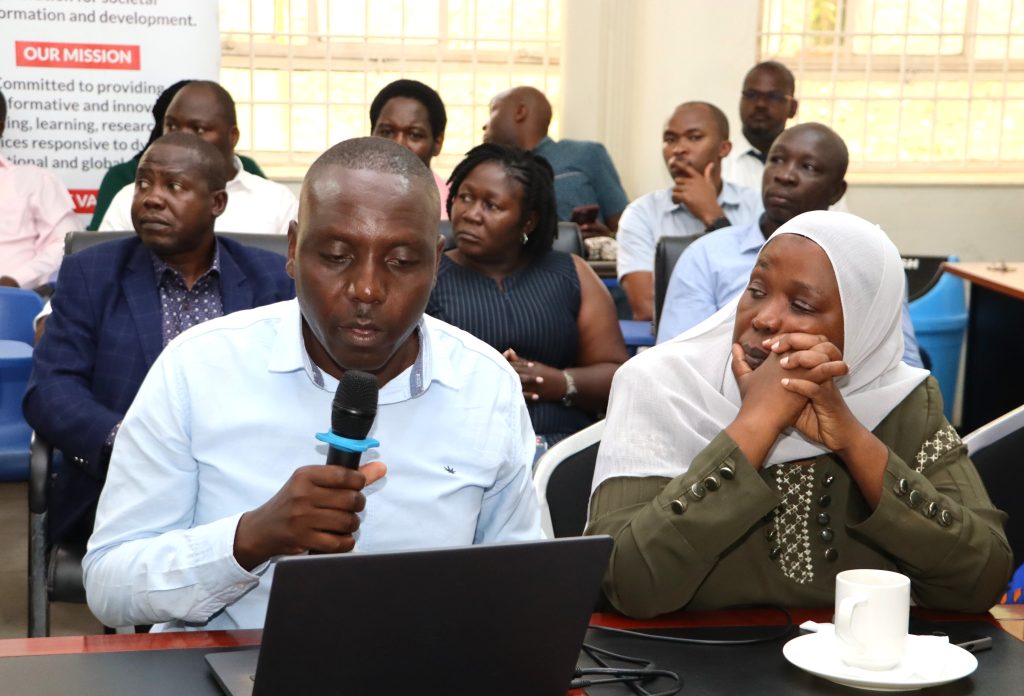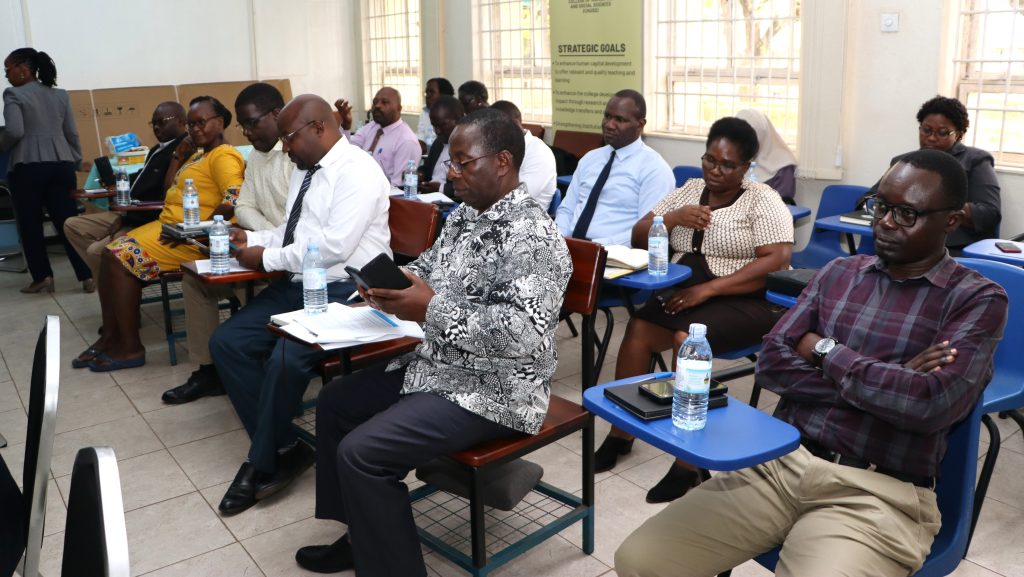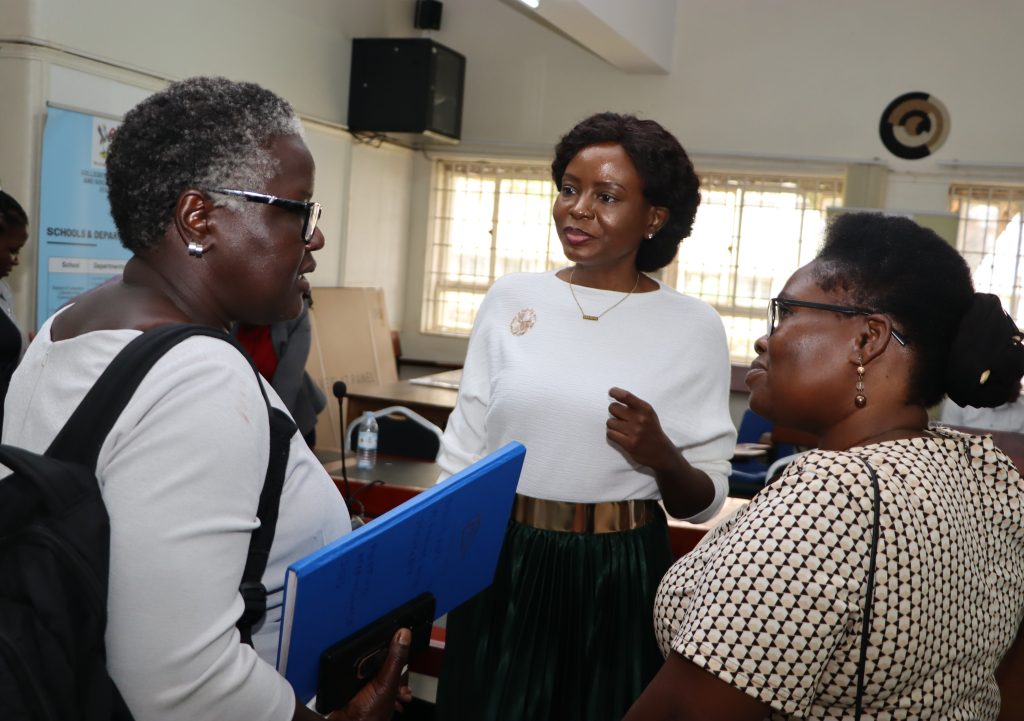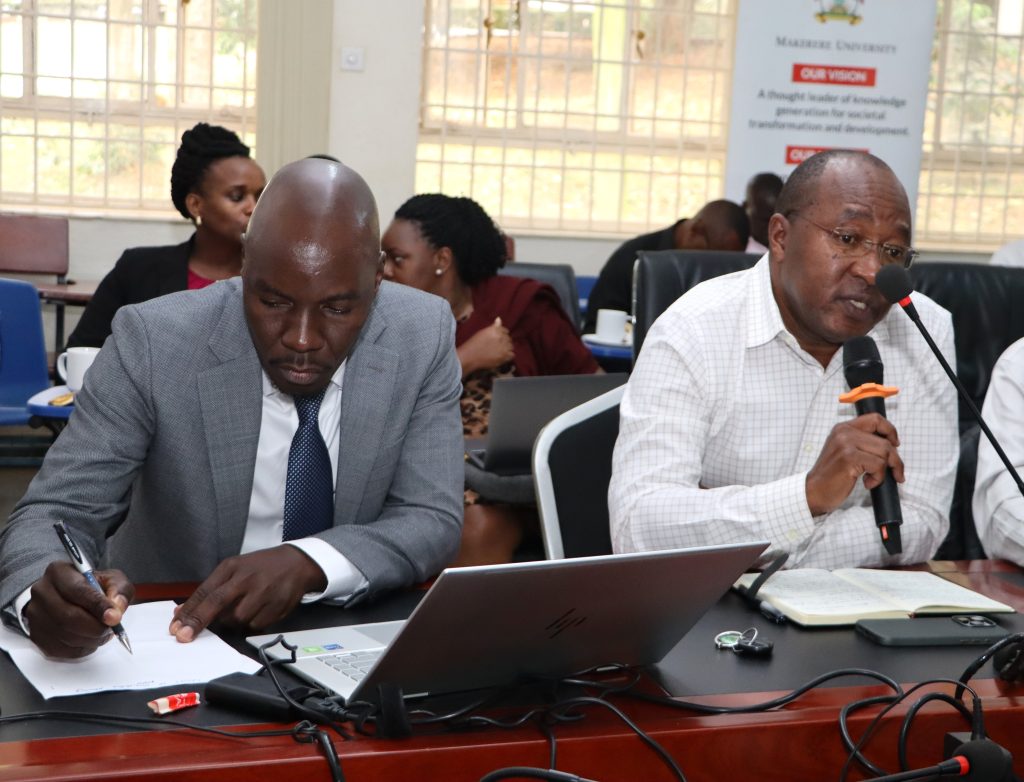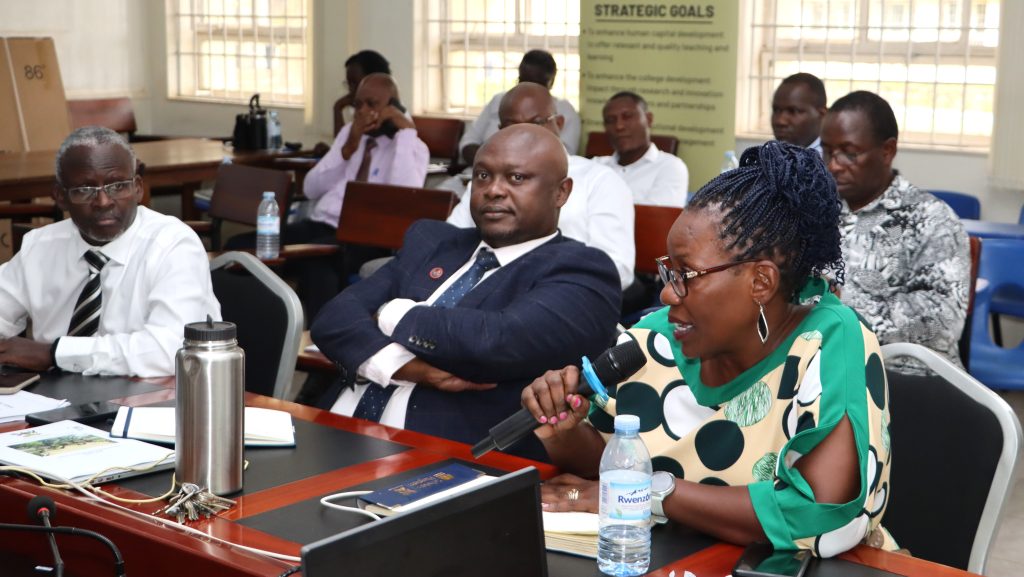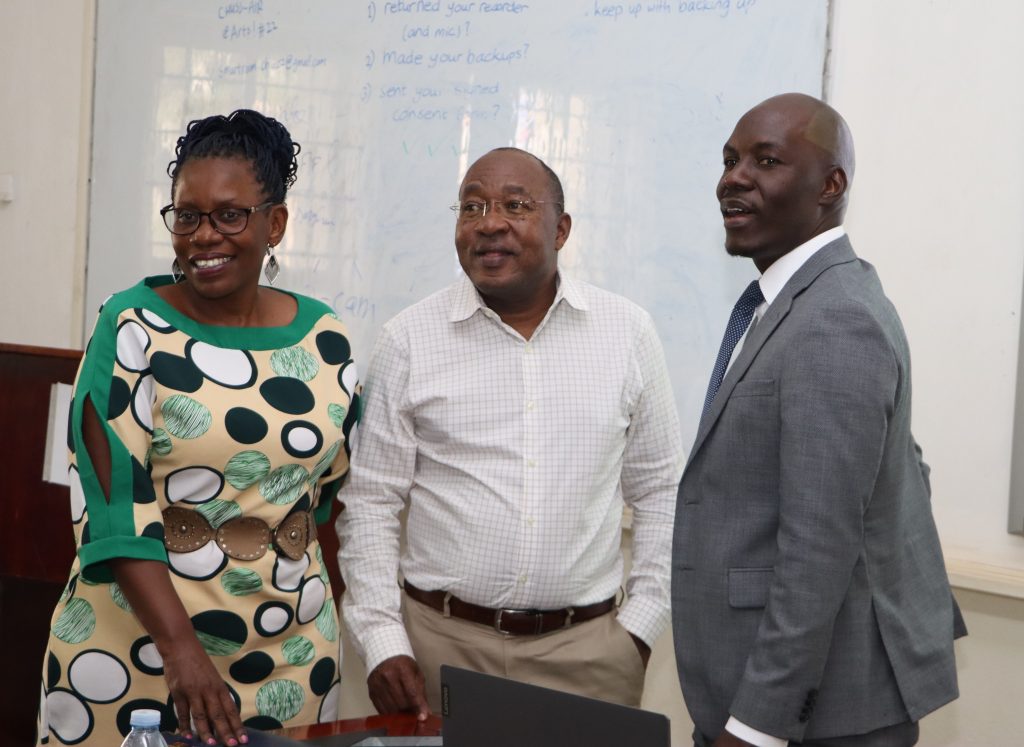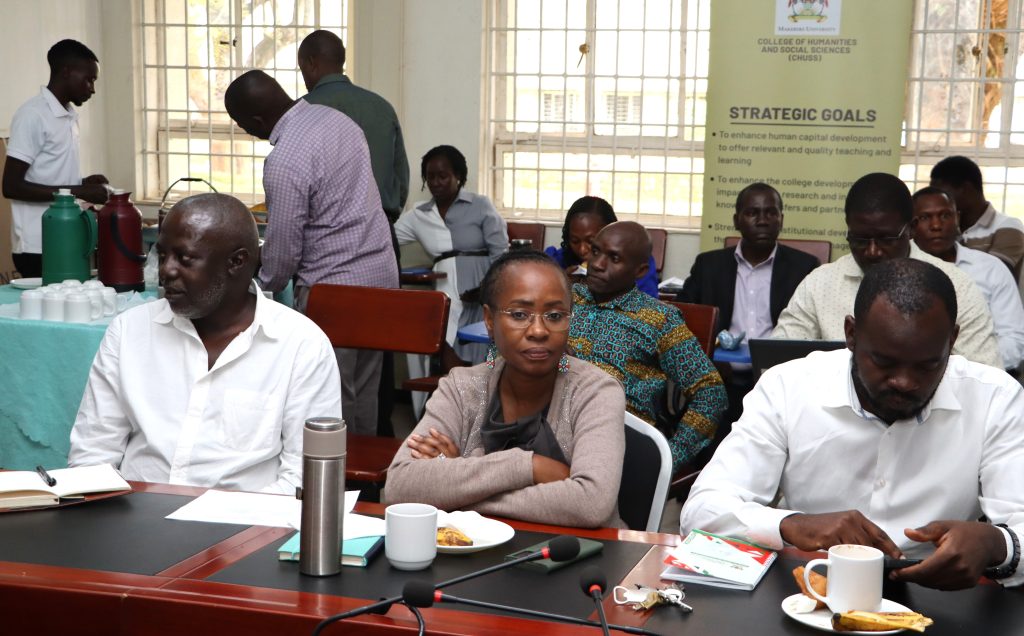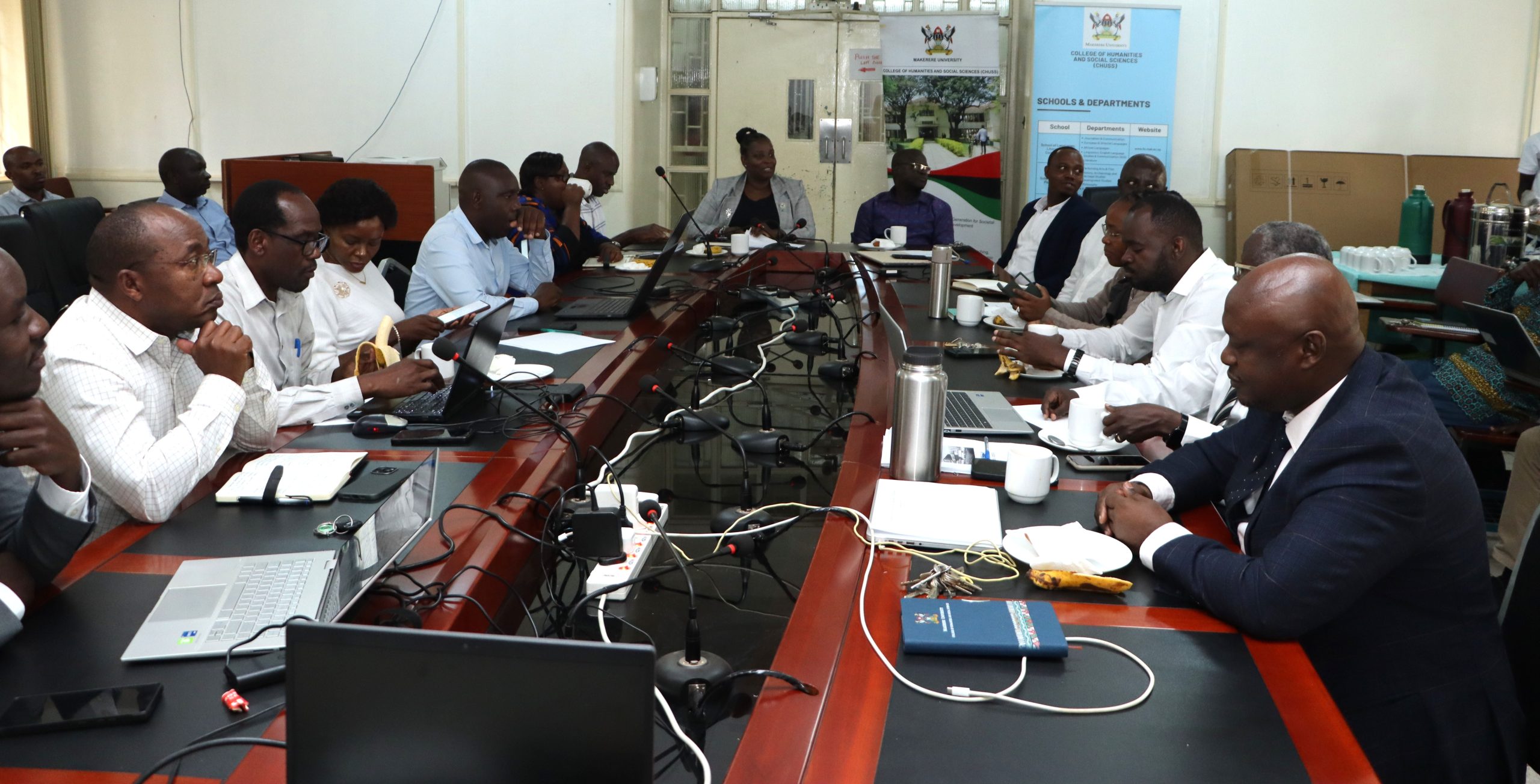Makerere University, Kampala – September 8, 2025
The Makerere University Strategic Plan Task Force has commended the College of Humanities and Social Sciences (CHUSS) for its well-organized and substantive response to the ongoing consultations for the 2025/26–2030/31 University Strategic Plan. The college’s position paper, which critically highlighted the marginalization of humanities and social sciences in the draft plan, was described as “a challenge and an awakening” to the Task Force to re-examine the document.
The commendation was made during a strategic consultation meeting held on Monday, September 8, 2025, at the CHUSS Smart Room. The Task Force, led by Acting Director of the Planning Unit, Mr. Emmanuel Kitamirike, is currently engaging with various academic and administrative units across the university to gather input for the new strategic direction.
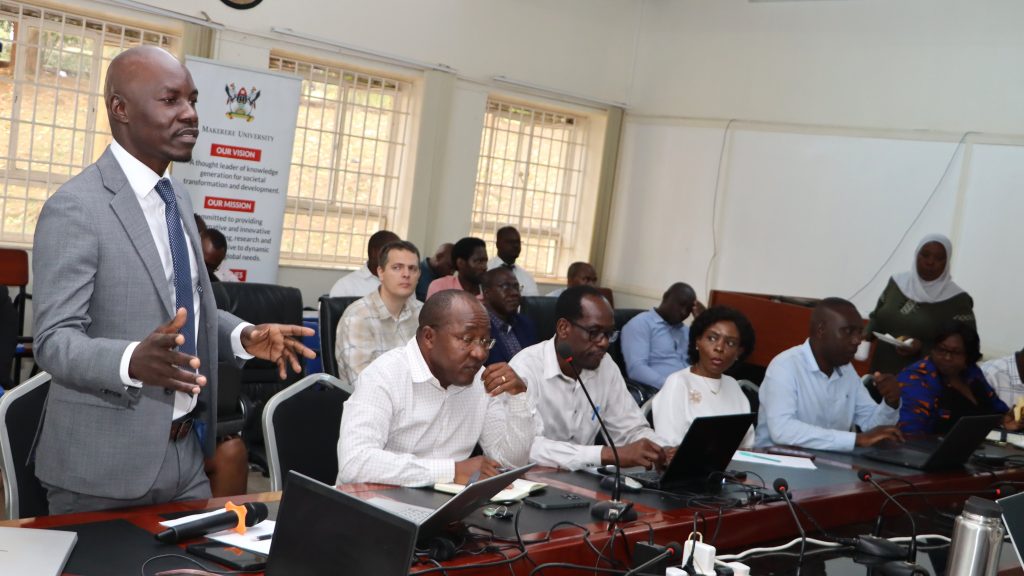
In his remarks, Mr. Kitamirike praised CHUSS for presenting a robust and well-reasoned position. “CHUSS has been very organized in responding to the Task Force’s call for feedback. They have raised a very important issue—the invisibility of humanities in the current draft. Their input is a challenge to us to take a fresh look at the plan and see how we can better mainstream the humanities across all aspects,” he said.
Mr. Kitamirike also clarified the broader policy context influencing the university’s planning process. He noted that all public institutions are required to align their strategic plans with the national Vision 2040 and NDP IV if they are to access funding from the consolidated fund. While acknowledging the “top-down” nature of this directive, he stressed the importance of unit-level contributions in shaping the final investment plan.
“The university-wide strategic plan will be reinforced by individual unit plans. Units are expected to revise or develop their own strategic plans indicating how they will contribute to implementing the broader university strategy,” he explained.
CHUSS’s 20-page document, presented by Dr. Chris Opesen and Dr. Lynda Nakalawa, offers a comprehensive critique of the draft strategic plan, arguing that it heavily leans towards STEM disciplines, with limited integration of the behavioral, creative, and humanistic sciences. The paper advocates for a more balanced, interdisciplinary approach, aligning with the pillars of Uganda’s National Development Plan (NDP IV), which emphasizes socio-economic transformation.
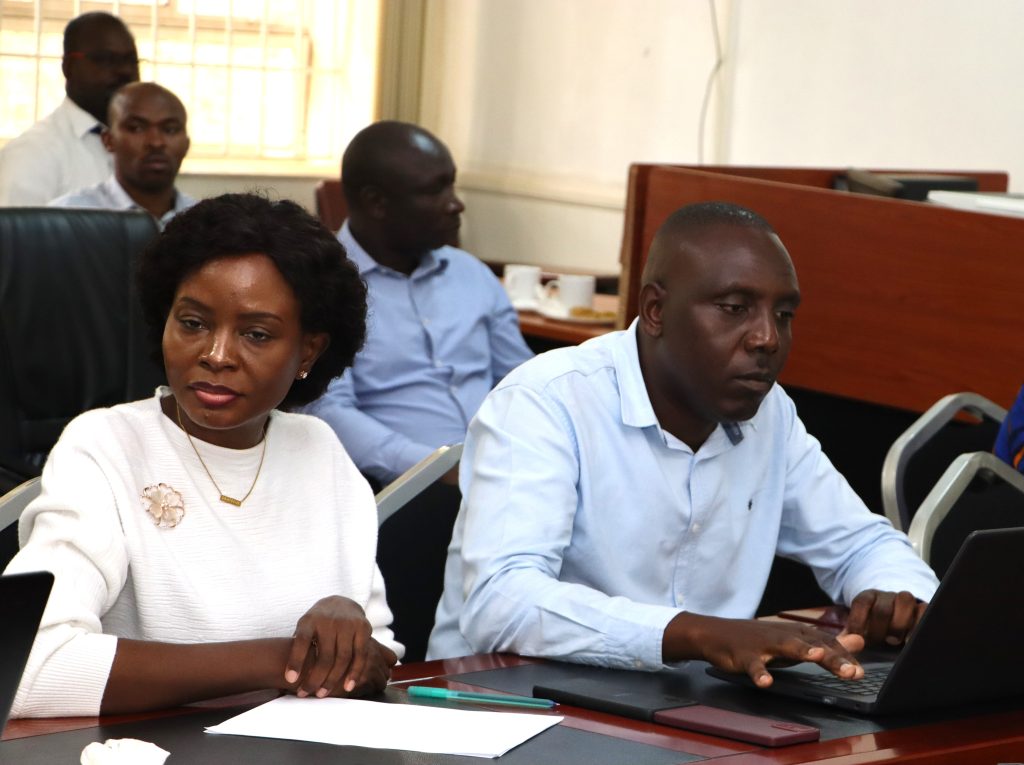
“The overall observation is that while the plan is generally good, it is skewed towards STEM,” Dr. Opesen said. “Socio-economic transformation cannot be delivered by STEM alone. We need synergy between STEM and the humanities to effectively address Uganda’s development challenges.”
In preparation for the consultation, CHUSS convened a two-day internal retreat from September 2–3, 2025, involving 30 participants, including principals, deans, heads of departments, professors, and administrative heads. The retreat aimed to consolidate a united and informed position from the college.
Assoc. Prof. Helen Nkabala, Principal of CHUSS, emphasized the collaborative spirit behind the position paper. “At CHUSS, we believe in teamwork. Everyone was involved—from academic to support staff. We believe that the implementer of a plan must shape it. That is why we took this activity seriously,” she noted.
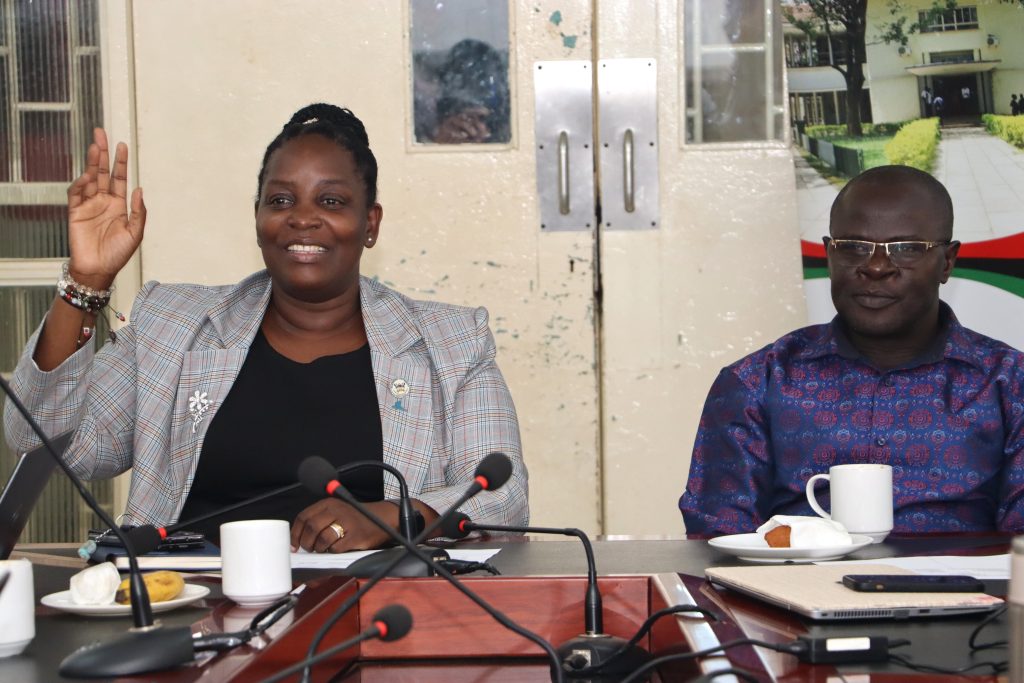
Responding to the presentation, Task Force member Christine Amito acknowledged the depth of input from CHUSS and other units consulted so far. She urged the Task Force to anchor the plan in clear strategic priorities, especially around human resource development and infrastructure, while also pushing for a holistic review of outdated policies. “If we don’t come up with a clear strategy in the plan, it’s as good as not reviewing it at all,” she cautioned.
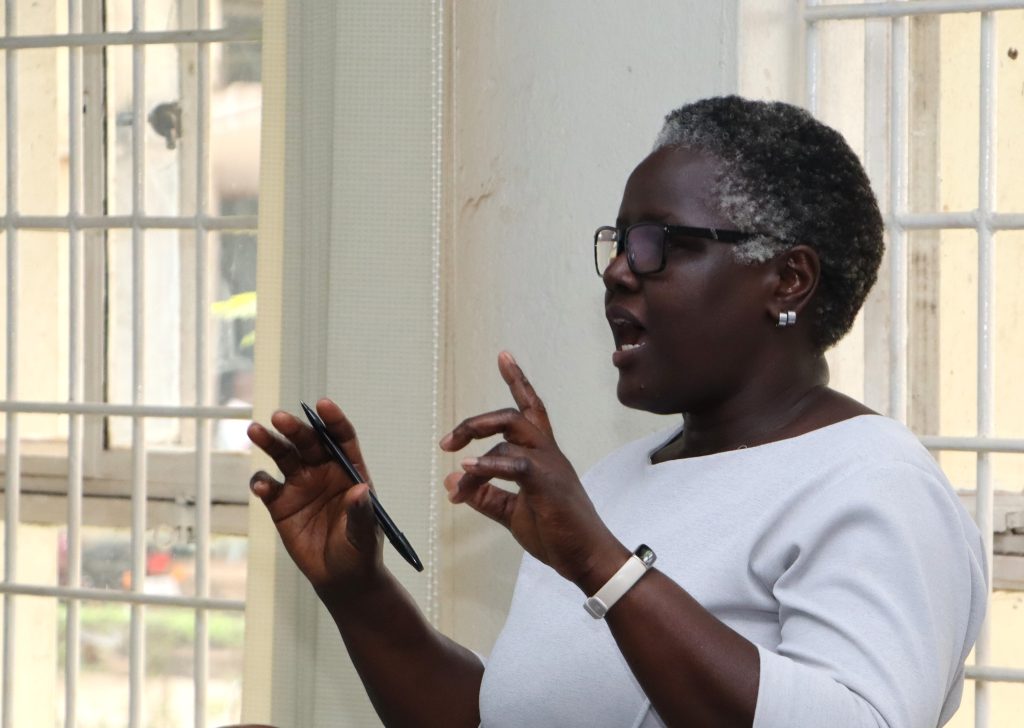
As consultations continue, the Task Force is expected to integrate feedback from all university units before submitting a revised version of the strategic plan to the University Council for approval. If approved, the plan will serve as the institution’s blueprint for academic, research, infrastructural, and administrative development over the next five years.
The proactive stance taken by CHUSS has set a precedent for evidence-based and collaborative participation in university governance, underscoring the critical role of humanities and social sciences in shaping the future of higher education in Uganda.
